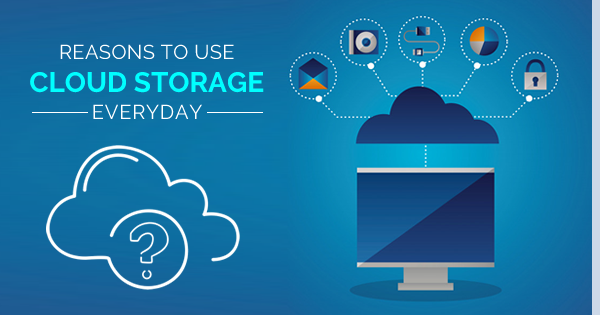LinkDaddy's Latest Development: Universal Cloud Storage Service Insights
Transform Your IT Infrastructure With Universal Cloud Solutions
In today's rapidly advancing digital landscape, the shift in the direction of universal cloud solutions has actually become a critical essential for companies aiming to enhance their IT framework. The ability to enhance operations, enhance scalability, and boost overall effectiveness through cloud movement is obvious. The genuine concern lies in how these solutions can be tailored to deal with the special demands and challenges faced by different companies. By checking out the nuanced methods which universal cloud services can be customized and incorporated, companies can genuinely open their full possibility in accomplishing digital improvement and competitive advantage on the market.
Benefits of Universal Cloud Services
One crucial advantage is cost-efficiency, as cloud solutions remove the need for in advance investments in hardware and facilities. Furthermore, cloud solutions give flexibility and accessibility, making it possible for employees to gain access to information and applications from anywhere with a net link.
Furthermore, global cloud solutions supply better safety actions, with information security, normal backups, and built-in disaster healing mechanisms. This makes certain that business-critical details is protected from potential risks and violations. Cloud solutions make it possible for automated updates and upkeep, lowering the worry on inner IT groups and making certain that systems are constantly updated and running efficiently. In general, accepting global cloud solutions can lead to boosted effectiveness, dexterity, and competitiveness for businesses in today's electronic age.
Migration to Cloud Infrastructure
Moving to cloud facilities deals numerous benefits, including scalability, cost-efficiency, and raised dexterity. Cloud solutions get rid of the demand for significant in advance financial investments in physical equipment, lowering capital expenditures and enabling companies to pay only for the sources they make use of.
Another advantage of moving to shadow infrastructure is the improved dexterity it provides. Cloud systems provide fast release of applications and services, making it possible for companies to adapt swiftly to market modifications and remain in advance of competitors. Furthermore, the cloud assists in remote accessibility to applications and information, promoting partnership among geographically distributed teams.
Enhancing Data Safety Measures

One essential facet of improving data security is implementing multi-factor verification (MFA) to add an additional layer of protection past passwords. MFA calls more information for users to provide 2 or even more confirmation aspects, such as a password and a special code sent to their mobile device, before accessing delicate data. This considerably reduces the danger of unauthorized accessibility, also if passwords are compromised.
Additionally, organizations must frequently conduct security audits and susceptability evaluations to determine and attend to prospective weak points in their data security facilities - universal cloud storage. By staying positive and continually improving information safety and security measures, organizations can successfully mitigate threats and guard their valuable info possessions in a progressively digital world
Applying Cloud-Based Applications
In adapting to modern technical improvements, companies are increasingly leveraging cloud-based applications to optimize their operations and enhance effectiveness. Cloud-based applications use a range of advantages, consisting of versatility, scalability, and cost-effectiveness. By applying cloud-based applications, businesses can improve processes, improve partnership amongst teams, and improve total productivity.

Moreover, carrying out cloud-based applications can lead to better information monitoring and protection. These applications generally have integrated protection functions and provide Check This Out information file encryption to shield sensitive information.
Making Best Use Of Cost-Efficiency
To accomplish optimal cost-efficiency in leveraging cloud-based applications, organizations should strategically evaluate their source allotment and application. One essential strategy for taking full advantage straight from the source of cost-efficiency is to adopt a pay-as-you-go model, where companies only spend for the resources and solutions they use. This adaptability allows for cost financial savings by eliminating the requirement to buy costly facilities that might not be fully made use of.

Normal surveillance and optimization of cloud sources are vital for identifying areas where cost-savings can be achieved. By examining use patterns and efficiency metrics, companies can make informed decisions regarding source appropriation and additional enhance their procedures to maximize cost-efficiency in the cloud.
Verdict
In conclusion, global cloud services use many benefits such as cost-efficiency, flexibility, enhanced safety procedures, and automated updates. Migrating to cloud infrastructure enables companies to utilize dexterity, cost-efficiency, and scalability to stay affordable.
Furthermore, cloud services offer adaptability and accessibility, allowing employees to access data and applications from anywhere with a net connection.Furthermore, universal cloud services use improved protection actions, with data security, routine back-ups, and integrated disaster recuperation mechanisms. Cloud platforms offer fast deployment of applications and services, making it possible for companies to adjust rapidly to market modifications and stay in advance of rivals. Furthermore, the cloud promotes remote access to information and applications, cultivating cooperation amongst geographically spread teams.
In final thought, global cloud solutions offer various advantages such as cost-efficiency, adaptability, enhanced safety actions, and automated updates.